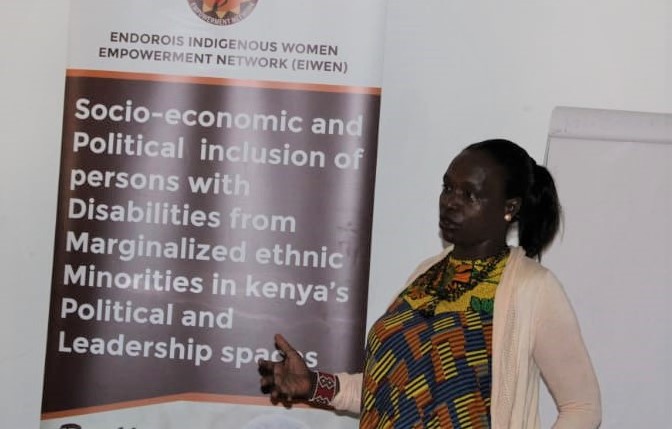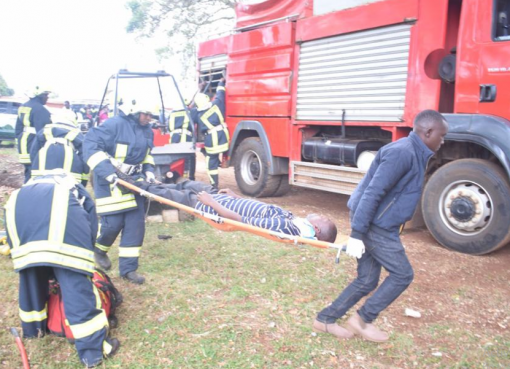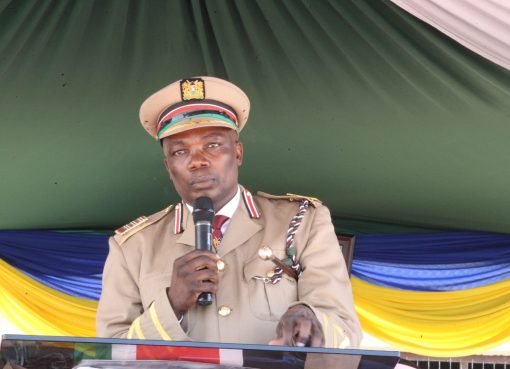Endorois women and persons living with disabilities (PWDs) have urged the national and county governments to consider them for upcoming leadership and employment opportunities saying they have been sidelined for a long time.
The forum led by Christine Kandie, the director of the Endorois Indigenous Women Empowerment Network (EIWEN) held a consultative meeting to monitor the extent of inclusion for PWDs and marginalized ethnic minorities in leadership and political spaces that was held at a resort in Marigat town Baringo South Sub-County on Saturday that brought together over 30 women and PWDs from Baringo, Laikipia and Narok counties.
Kandie regretted that they had been left out in leadership opportunities but urged both the national and the county government to consider the minority and marginalized communities of Ilchamus, Endorois, Ogiek and PWDs in their appointments and encouraged residents to apply for the positions.
“As PWDs and marginalized ethnic communities we have been left out in leadership and employment opportunities and it is necessary for one of us to represent us since they know the challenges that we face,” Kandie said.
She further cited the United Nations Convention on the Rights of Persons with Disabilities (UNCRPD) charter that calls for inclusion and effective participation, equality between men and women and respect to children with disabilities adding that article six of the charter recognizes that women and girls who are disabled are subjected to multiple discrimination.
“Women, in particular the ones with disabilities, are disadvantaged economically and socially and even issues of climate change affect mostly women and girls as men can disregard responsibility of fending for their families leaving mothers to carry the burden,” Kandie added.
Daudi Ruto from National Gender Equality Commission (NGEC) who was present trained the participants on the need to have women, minority and marginalized groups, PWDs, youth, children and all members of the society represented in leadership spaces in order to spearhead formulation and implementation of policies that would safeguard their interests.
“As a commission our mandate is to make sure there is gender mainstreaming in all government sectors to aid in policy formulation and decision making. It is therefore important for you to avail yourself and fight for your rights,” he said.
Joseph Chepkonga, a PWD said the right representation was important for the enhancement of the development agenda and thanked the organization for the continuous empowerment programmes in the community.
Judy Nakol from the Ogiek community in Narok County urged participants to come out and fight for their rights saying the opportunities were available for both women and PWDs to become leaders.
The consultative meeting was aimed at monitoring the extent of inclusion of PWDs and marginalized ethnic minorities in the leadership and political spaces culminating from previous EIWEN advocacy interventions and engagement with constitutional bodies and government institutions.
The action plan agreed upon included participation in all forums, civic education, proper planning, having relevant qualifications, fulfilment of requirements of chapter six of the Constitution of Kenya, policy formulation and unity of purpose.
By Caroline Cherono




